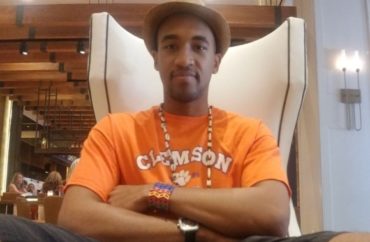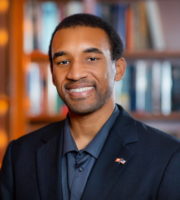
As a black man who attends Clemson University, I am not troubled by the fact that its honors college is named after John C. Calhoun. But the mostly white liberal elites teaching at my university are convinced my emotional welfare depends on the South Carolina statesman’s name being stricken from the record.
Roughly 150 faculty recently signed an open letter in support of a student and alumni petition to remove Calhoun’s name from the honors college.
“How can we ‘aspire to create a diverse community’ when we choose to honor Calhoun? What kind of community do we hope to build if we cannot recognize the callousness expressed in continuing to keep his name on our Honors program,” professors ask.
Here’s a conundrum for those bemoaning Calhoun’s name — why stop there? Thomas Green Clemson, the university’s founder and namesake, was a slaveowner. If they want to strip Calhoun’s name, shouldn’t they also want to change the name of the whole school? At some point, perhaps they will.
Whose memory will be erased next? Thomas Jefferson, George Washington? Many of the nation’s Founding Fathers owned slaves. But should the profound good that they made in establishing America be ignored or even erased? How different then is Clemson, or his father-in-law, Calhoun?
This crusade against harmless monuments and names will only create a slippery-slope of hasty revisionism that will lead to the removal of anything remotely connected to racism. That is not only unnecessary, but a mistake.
When I hear the name Calhoun, or walk by Fort Hill, his home and today a historical site on campus, I feel no sense of hatred or fear. In many ways, I feel a deep sense of gratitude that Calhoun’s mansion has now been repurposed away from something negative (slave plantation) into serving as a positive educational good (Clemson University).
I am aware Calhoun owned roughly 50 slaves and once called slavery a “positive good” that profited both slaves and their masters. But despite the negative aspects of Calhoun’s legacy, he carried many renowned distinctions that often go unappreciated.
He is notable for being one of the “Great Triumvirate” or the “Immortal Trio” of Congressional leaders alongside the legendary political figures Henry Clay and Daniel Webster. Calhoun was also the only figure in American history to have served such a multi-faceted role in the federal government, having been a United States Representative, Senator, Secretary of War, Secretary of State, Vice President and presidential candidate. In 1957, a Senate Committee headed by then Senator John F. Kennedy selected Calhoun as one of the “Famous Five,” honoring the five greatest United States Senators of all time.
I have learned to cope with and transcend racist elements of the past, while focusing more on developing a brighter future. I urge my professors and peers to join me.
Yet this sort protest for historical revisionism continues to gain steam. The chaotic demonstrations and tearing down of the Silent Sam Confederate statue at the University of North Carolina Chapel Hill is evidence of a new era of political correctness where suddenly the undesirable elements of our history should no longer be tolerated or remembered.
The indiscriminate erasing of Confederate monuments and echoes of slavery will do nothing to alter the past nor guarantee any escape from racism in the future. What happened, happened. As the historian George Santayana famously uttered, “Those who do not learn from history are doomed to repeat it.”
MORE: Clemson professor who called all Republicans ‘racist scum’ is at it again





Please join the conversation about our stories on Facebook, Twitter, Instagram, Reddit, MeWe, Rumble, Gab, Minds and Gettr.